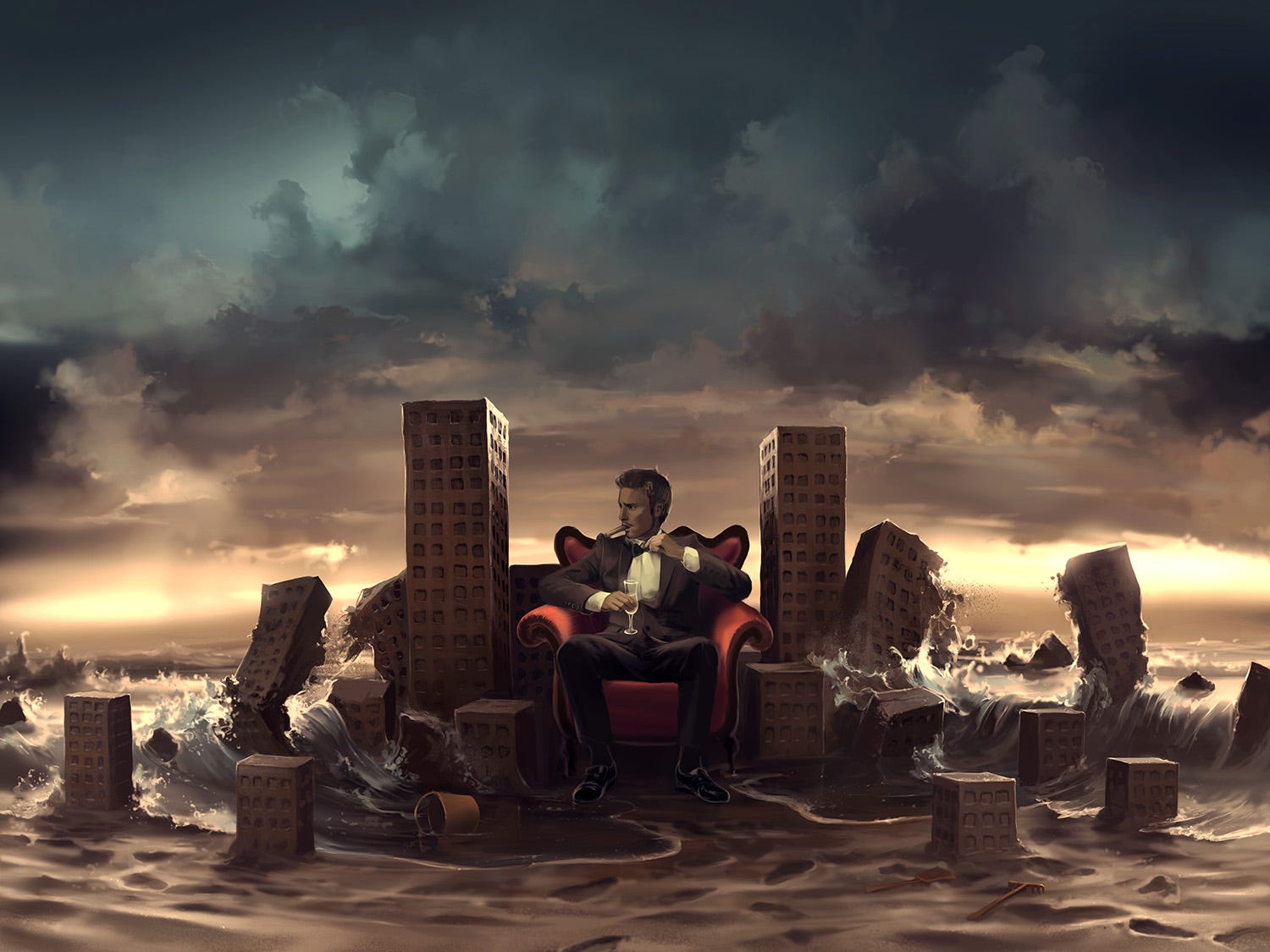
“Making good judgments and acting wisely when one has complete data, facts, and information is not leadership. It’s not even management. It’s bookkeeping. Leadership requires ability to make wise decisions and act responsibly upon them when one has little more than a clear sense of direction, proper values, and some understanding of the forces driving change.” — Dee Hock, Visa founder and CEO Emeritus
I open this article with Dee Hock’s wise words because it highlights one of the most valuable skills of leadership in a VUCA world. Leaders make decisions and push forward even when the pathway is uncertain. In the seven-part series with Dee Hock on the Innovation show, Dee highlights the difference between an Odyssey and a Journey. A journey has a defined destination while an odyssey does not. A journey follows a predictable path, while an odyssey is ambiguous. A journey follows a map, just as business execution follows a strategy. In contrast, an odyssey follows a sense of purpose, vision and collective values.
The waves of disruption are increasingly frequent, this is one trend that we know will continue. As a result, business destinations are no longer clear. Today, we are embarking on odysseys, not journeys. Organisational leadership must embrace this new modus operandi and that is difficult. Our education systems have prepared us to operate in a steady, staid environment, a world that no longer exists. If you are a leader of an established, successful business you often play not to lose, rather than playing to win. You are hampered by the paradigms of predictability and control. You want to know how things will end before they begin, and that is not possible.
The Covid crisis is just the latest manifestation of chaos that is the new normal. Disruption widespread in the form of digital, technological and now pandemic disruption. There is much more to come, we have yet to feel the impact of artificial intelligence and automation in the workplace. If Covid-19 has any silver lining, it is a wake up call. For leaders it will spark a new style of leadership, perhaps the way it should have always been, and this new style requires a new mindset.
Our guest on this week’s Innovation Show is Chuck Swoboda, who distinguishes leadership from management. This distinction reflects how we treat an odyssey versus how we treat a journey.
“[Odyssey] Leadership is the art of motivating a group of people towards achieving a possible future reality. Leaders get people to take risks in an attempt to overcome a challenge or achieve something new and better. Success is measured by what the team learns while striving for the larger goal.
[Journey] Management, on the other hand is the process of getting people to follow rules or procedures to achieve defined objectives. Managers use these objectives to reduce risk and deliver predictable outcomes. Success is measured by how well each person does their job, follows the process and delivers the expected result.” — Chuck Swoboda, The Innovator’s Spirit
Sandcastle Strategy or Surfing Mindset

Until recently, the tides of change were steady. We did not experience disruption at the pace we do now. We built sandcastles at the edge of the water, but the tide came in slowly. (Thank you Innovation Show guest Heather MacArthur for the analogy). Once established, organisations shifted from a visionary mindset to an execution mindset. Today, we do not have that luxury. A cocktail of digitisation, Moore’s law, artificial intelligence, data, globalisation and pandemics has changed all that. Flexibility, adaptability and resilience characterise the new mindset.
Over the coming decade, we will witness as much change as we have experienced in the last century. This means managing change is a mindset we must embrace. We can stick our heads in the sand and build sandcastles, but the next wave will just wipe us out. The alternative is to surf the waves and execute as we surf. Surf’s up!
“The Message is simple, fasten your seatbelts. The turbulence has scarcely begun. We are in the midst of an explosion of societal diversity and complexity much greater than we can possibly imagine. And we’re going to manage such an explosion of societal diversity and complexity with archaic 17th century industrial-aged concepts of organisation and management? Not a chance of a snowball in the Sahara desert. ” — Dee Hock (listen to Dee Hock share this message here)
(Artwork courtesy of: Aquasixio)
On this week’s Innovation Show, we welcome author of “The Innovator’s Spirit: Discover the Mindset to Pursue the Impossible”, Chuck Swoboda.
In his book, our guest — the retired chairman and CEO of Cree, a company that fundamentally changed the way people experience light and drove the obsolescence of the Edison light bulb — explains that innovation is fundamentally about people and tells us how to develop a mindset of creativity, risk-taking, and hard work.
He tells us that everyone wants to create new products and services, find new customers and markets, stay ahead of the competition, and work smarter instead of harder. Yet with all the focus and attention on innovation, the term has become an overused buzzword rather than a real, tangible concept. If you want to seriously pursue innovation — you need to strip away the hype.
Real innovators need to transcend the existing ideas, rules, and patterns to discover exciting new outcomes. They must step outside the best practice box and get their hands dirty. The spirit of a true innovator is rooted in wanting to do something that has never been done before, to solve problems that have never been solved, and to run through walls and leap over tall buildings to get there.
Have a listen:
Soundcloud https://lnkd.in/gBbTTuF
Spotify http://spoti.fi/2rXnAF4
iTunes https://apple.co/2gFvFbO
Tunein http://bit.ly/2rRwDad
iHeart http://bit.ly/2E4fhfl